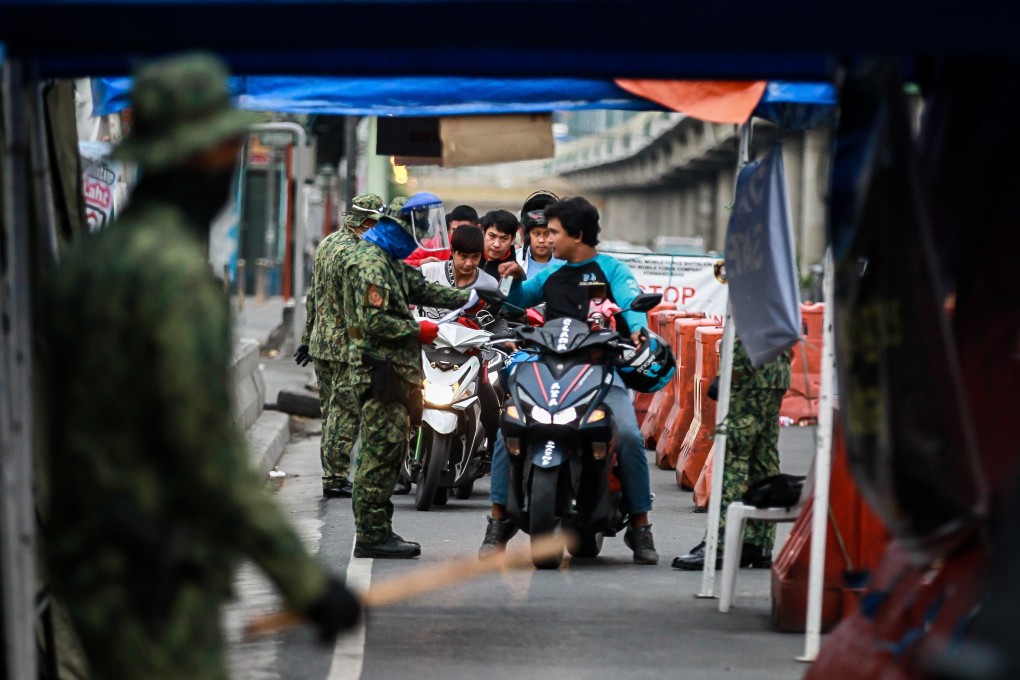Coronavirus: fears grow of ‘martial-law like’ lockdown in the Philippines
- Heavy handed police tactics and a leaked military memo have conjured the spectre of martial law, which President Rodrigo Duterte has used before
- The threat follows nearly 133,000 people being caught violating the country’s ‘enhanced community quarantine’ since it was imposed on March 15

The one-page document, issued on Friday, instructed unit commanders to “prepare for strict implementation … [of an] extensive enhanced community quarantine”.
The military confirmed the document was legitimate, with Armed Forces of the Philippines (AFP) spokesman Brigadier General Edgard Arevalo saying there was no reason to be “alarmed”.
“This [is a] natural reaction of the AFP to prepare and deploy when it becomes necessary,” he said, adding that soldiers had already been manning checkpoints ever since the quarantine order began on March 15.

On Sunday, four policemen “loudly insisted” on checking whether residents of the condominium, who included foreign company executives and their families, were complying with social distancing rules. The officers “berated” residents, according to a statement by the management of Pacific Towers in Taguig City, which said the raid was “clearly inappropriate and possibly illegal.”